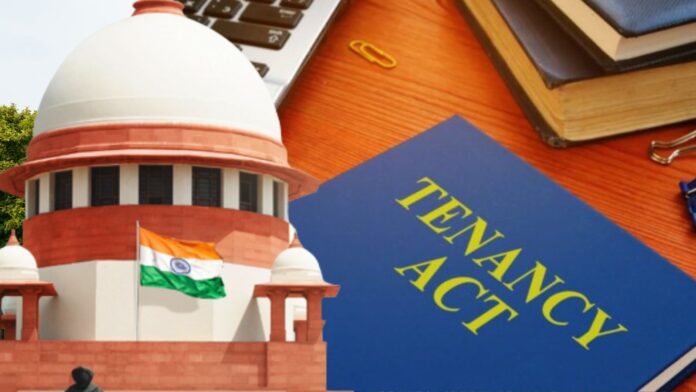Sensing the pangs of the tenants, the Supreme Court in one of its landmark judgments has ruled that landlords will no longer be able to force their tenants to leave their rented accommodations at least for 5 years if they were not paying their rent regularly.
Remarkably, the Supreme Court ruling has come in the backdrop of cases of land-lords generally adopting wrongful measures such as cutting-off basic utilities like electricity or water, altering the locking mechanism of the tenanted property, throwing away tenant’s belongings from the rented property to force his tenant out of his rented house.
While terming these acts as criminal offenses, the Supreme Court observation which has come in favor of the tenants even rules that a person living in the rented accommodation even possesses the right to file charges against the landlord if he is found guilty of doing so.
In another ruling, the top court has mandated certain other rules that will help the tenant not be forced to leave his rented house and will stop him from coming on the streets with all their belongings and family.
In course of its judgment, the top court of the country has focussed upon certain things that must be taken care which mandates that a rent agreement must be drafted with the help of a property lawyer which should also include provisions such as the use of property, termination of rent agreement, rent amount, etc.
The court ruling further states that the rental agreement must be made for only 11 months and it should also provide a clause of optional renewal of the agreement as it will protect a tenant against his eviction even in the future.
Another landmark ruling that the Supreme Court gave in this regard says that eviction must be justified under the respective state’s rental laws in which jurisdiction the property falls.
While mandating another provision, the Supreme Court also held that land-lord must not evict a tenant without sending him /her a proper and previous eviction notice and even granting him a time period to respond with.
The court in its other ruling mandated that a background check of the tenant must be done before renting the property to someone.
Another prominent question that arises in this regard is in case the tenant doesn’t pay his rentals for a long time which is considered a common ground for evicting a person out of the rented house. In that case , proper legal notice should be sent to the tenant with details on the rent due, asking him to comply or vacate, and the course of action if the tenant does not respond either way.
Do tenants have rights without a lease?
In such tenancy cases which are longer than a month’s period, the landlord cannot end the tenancy without cause by the end of the term. However, the landlord does not require to give the tenant a previous notice to move out at the end of the term unless the lease specifically requires it.
Can a landlord call the police to evict his tenant?
In India, as per existing rules, a landlord who doesn’t hold the authority to evict his tenant as doing so will be termed illegal and impractical, and not even call the police to do so.
How long eviction process takes in India?
In India, the entire eviction process generally takes 3-7 years long years, however, if you really want a speedy trial then you can apply such a petition before the court.
What are the rights of the tenants who don’t possess leases in India?
As per the new rules , it will not be required necessarily that a tenant would require a lease to stay at a rented accommodation which is generally called a tenancy at will. It should be known that in our country all the states have their own set of rules on a tenancy which are applied in their respective jurisdictions. For instance, the state of West Bengal follows the West Bengal Premises Tenancy Act 1977.
What to do if the tenant is not paying the rent?
A lease agreement ideally should include courses of action in case of non-payment of rent which is one of the common grounds across state tenancy acts for the eviction of a tenant.
A legal notice can be sent to the tenant mentioning details on the rent due, asking the tenant to comply or vacate, and the course of action a dweller of the rented house going to embark on if the tenant does not respond both ways.
How long can a tenant stay without paying rent?
In the case of a person living in a rented house, there are some provisions that mention the time limit after which a tenant can’t live in his rented house. Lease agreements must contain clauses over a ‘grace period’ up to which a tenant can stay without rent. Negotiations can also pave the way to fixing the amount of time a tenant can live without rent.
How can I evict a tenant without a lease in India?
In India, since all states have their rules and regulations on tenancy, eviction can be done as per the provisions under their respective laws. Among non-payment of rent, the other common grounds for eviction include engaging in things that may reduce the utility or value of the rental property or allowing someone else to occupy the property, without due permission of the landlord.
Which measures a landlord can take if a tenant refuses to move out of his premises?
If the tenant does not comply with the legal grounds of eviction and refuses to move out, an eviction procedure could be started. Valid grounds for moving the court for eviction are the failure to pay rent and refusal to move at the end of the lease period.






